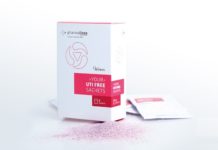Findings from a randomized, Phase II study of 111 patients showed the proportion of metastatic breast cancer patients without tumor progression at six months was 61.1% for those taking everolimus plus tamoxifen (95% confidence interval [CI], 46.9 to 74.1) versus 42.1% for patients treated with tamoxifen alone (95% CI, 29.1 to 55.9); p=0.045[1].
Disease progression was delayed by a median of 8.6 months in patients treated with the combination versus 4.5 months in patients treated with tamoxifen alone, with everolimus in combination with tamoxifen providing a statistically significant reduction in the risk of disease progression by 47% (hazard ratio=0.53 [95% CI, 0.35 to 0.81]; log-rank test: p=0.0026, exploratory analysis). Side effects were generally manageable in both study arms. As of October 2010, there were 25 patient deaths in the tamoxifen arm versus nine in the everolimus plus tamoxifen arm (hazard ratio=0.32 [95% CI, 0.15 to 0.68]; log-rank test: p=0.0019)[1].
This Phase II trial is conducted by the Groupe d’Investigateurs Nationaux pour l’Etude des Cancers Ovariens et du sein (the French GINECO Group). Everolimus is an investigational agent for the treatment of patients with breast cancer. Everolimus targets mTOR in cancer cells, a protein that acts as an important regulator of tumor cell division, blood vessel growth and cell metabolism[7],[8].
Thomas Bachelot, MD, from Centre Léon Bérard in Lyon, France, and principal investigator of the study said, The almost doubling of time to disease progression seen in the everolimus plus tamoxifen treatment arm reinforces the potential benefit of inhibiting mTOR to help overcome endocrine therapy resistance. Based on these results, additional studies will evaluate the combination of everolimus with hormonal therapies as a second-line treatment for patients with HR+/HER2- metastatic breast cancer.
Breast cancer patients with advanced disease who become resistant to hormonal therapies have limited treatment options[2]. Prior to these study findings, Novartis initiated a Phase III trial program called BOLERO (Breast cancer trials of OraL EveROlimus), which is the largest international Phase III clinical trial program to study an mTOR inhibitor in patients with locally advanced or metastatic breast cancer[4],[5],[6].
Hervé Hoppenot, President, Novartis Oncology said, These results are encouraging because if everolimus is approved for this indication, it could offer physicians a new strategy to treat patients with metastatic breast cancer whose disease progresses or becomes resistant to traditional hormonal therapies. Novartis has a Phase III study underway researching the potential of everolimus for this patient population, which currently has limited treatment options.
For more information about the BOLERO trials, healthcare professionals can visit www.theWIDEprogram.com.
Study Details: Abstract #S1-6
This randomized Phase II trial evaluated the efficacy and safety of everolimus in 111 patients with HR+/HER2- metastatic breast cancer with prior exposure to AI treatment (in adjuvant and/or metastatic setting). Patients were randomized 1:1 to receive everolimus plus tamoxifen (10 mg/day plus 20 mg/day, respectively) [N=54] or tamoxifen alone (20 mg/day) [N=57]. The primary endpoint was clinical benefit rate, defined as complete response, partial response and stable disease (CR+PR+SD) at six months in the everolimus plus tamoxifen arm. For the intent-to-treat analysis, a gain in clinical benefit of at least 20 percent was needed to warrant further study of the combination regimen, which was met in this trial[1].
For patients receiving everolimus plus tamoxifen, time to disease progression, a secondary endpoint, was almost twice as long as it was for patients receiving tamoxifen alone (8.6 months in patients treated with the combination versus 4.5 months in patients treated with tamoxifen alone). Everolimus in combination with tamoxifen provided a statistically significant reduction in the risk of disease progression by 47% (hazard ratio=0.53 [95% CI, 0.35 to 0.81]; log-rank test: p=0.0026, exploratory analysis)[1].
Side effects were generally manageable in both arms of the study. Everolimus had to be decreased for 15 patients (28%). Treatment was stopped due to toxicities in three patients in the everolimus plus tamoxifen arm and in four patients in the tamoxifen-only arm. Grade 3-4 adverse events (>10%) were stomatitis (11% in the everolimus plus tamoxifen arm and 0% in the tamoxifen-only arm), pain (9% in the everolimus plus tamoxifen arm and 19% in the tamoxifen-only arm) and fatigue (6% in the everolimus plus tamoxifen arm and 11% in the tamoxifen-only arm)[1].
Novartis Pharmaceuticals Corporation provided drug and financial support for this study.
About Breast Cancer
Breast cancer is the most prevalent cancer in women worldwide and is increasing in developing countries where the majority of cases are diagnosed in late stages[9]. Data has shown that approximately 30% of women with breast cancer will eventually develop metastatic or advanced disease[2]. In 2008, breast cancer caused approximately 460,000 deaths worldwide[10].
Breast cancer can originate in lobes, milk-producing ducts and other tissue within the breast. In these cases, some of the cells in the breast begin growing abnormally and uncontrollably. This quick division of cells may cause the cancer to spread through the breast to other parts of the body[11]. The process of finding out how widespread the cancer is at initial time of diagnosis is called “staging” The stage of breast cancer is one of the most important factors in determining treatment options[3].
There are several standard treatment options for people diagnosed with breast cancer, which are based on the advancement and type of an individual’s breast cancer, as well as their general health[3]. For patients with advanced or metastatic breast cancer who become resistant or progress on standard therapies, treatment options are limited[2].
About Afinitor (everolimus)
Afinitor is approved in the European Union (EU) for the treatment of patients with advanced renal cell carcinoma (RCC) whose disease has progressed on or after treatment with vascular endothelial growth factor (VEGF)-targeted therapy and also in the US for the treatment of patients with advanced RCC after failure of treatment with sunitinib or sorafenib.
Afinitor is also approved in the US to treat patients with subependymal giant cell astrocytoma (SEGA) associated with tuberous sclerosis who require therapeutic intervention but are not candidates for curative surgical resection. The effectiveness of Afinitor is based on an analysis of change in SEGA volume. Improvement in disease-related symptoms or increase in survival has not been shown. Novartis has submitted marketing applications for everolimus to the European Medicines Agency (EMA) and the Swiss Agency for Therapeutic Products (Swissmedic) and additional regulatory submissions are underway worldwide.
In the EU, everolimus is available in different dosage strengths under the trade name Certican® for the prevention of organ rejection in heart and kidney transplant recipients. In the US, everolimus is available in different dosage strengths under the trade name Zortress® for the prophylaxis of organ rejection in adult patients at low-moderate immunologic risk receiving a kidney transplant.
Everolimus is exclusively licensed for use in drug-eluting stents to Abbott for the XIENCE V® and XIENCE PRIME(TM) Everolimus Eluting Coronary Stent System*, and sublicensed to Boston Scientific for the PROMUS(TM) and PROMUS(TM) Element(TM) Everolimus Eluting Coronary Stent System**.
Not all indications are available in every country. As an investigational compound the safety and efficacy profile of everolimus has not yet been established in breast cancer. Access to everolimus outside of the approved indications has been carefully controlled and monitored in clinical trials designed to better understand the potential benefits and risks of the compound. Because of the uncertainty of clinical trials, there is no guarantee that everolimus will become commercially available for breast cancer or any additional indications anywhere in the world.
Important Safety Information about Afinitor (everolimus) tablets
Afinitor is contraindicated in patients with hypersensitivity to everolimus, to other rapamycin derivatives or to any of the excipients.
Cases of non-infectious pneumonitis have been described; some of these have been severe and occasionally fatal. Management of pneumonitis may require dose adjustment and/or interruption, or discontinuation of treatment and/or addition of corticosteroid therapy.
Afinitor is immunosuppressive. Localized and systemic bacterial, fungal, viral or protozoal infections (e.g., pneumonia, aspergillosis, candidiasis, hepatitis B reactivation) have been described; some of these have been severe and occasionally fatal. Pre-existing infections should be treated prior to starting treatment. Patients and physicians should be vigilant for symptoms and signs of infection; in case of emergent infections, appropriate treatment should be promptly instituted and interruption or discontinuation of Afinitor should be considered. Patients with systemic invasive fungal infections should not receive Afinitor.
Hypersensitivity reactions have been observed.
Mouth ulcers, stomatitis and oral mucositis have been seen. Topical treatments are recommended; alcohol- or peroxide-containing mouthwashes should be avoided.
Monitoring of renal function, blood glucose and complete blood counts is recommended prior to initiation and periodically during treatment. Cases of renal failure, some fatal, have been observed.
Afinitor is not recommended in patients with severe hepatic impairment.
Use of live vaccines should be avoided.
Afinitor is not recommended during pregnancy or for women of childbearing potential not using contraception. Afinitor may cause fetal harm in pregnant women. Women taking Afinitor should not breast feed. Male fertility may be compromised by Afinitor.
Avoid concurrent treatment with strong CYP3A4 and PgP inhibitors and use caution with moderate inhibitors. Avoid concurrent treatment with strong CYP3A4 or PgP inducers.
In advanced RCC, the most common adverse reactions (≥10%) include stomatitis, rash, fatigue, asthenia, diarrhea, anorexia, nausea, mucosal inflammation, vomiting, cough, infections, peripheral edema, dry skin, epistaxis, pneumonitis, pruritus and dyspnea. Common adverse reactions (≥1 to <10%) include headache, dysgeusia, dry mouth, pyrexia, weight loss, hand-foot syndrome, abdominal pain, erythema, insomnia, dyspepsia, dysphagia, hypertension, increased daytime urination, dehydration, chest pain, renal failure, hemoptysis and exacerbation of diabetes mellitus. Uncommon adverse reactions (<1%) include ageusia, congestive cardiac failure, new-onset diabetes mellitus, impaired wound healing, and grade 1 hemorrhage. Cases of hepatitis B reactivation and pulmonary embolism have been reported
In patients with SEGA, the most common adverse reactions (≥10%) include infections, hypertriglyceridaemia, cough, stomatitis, diarrhoea, acneiform dermatitis, acne, pyrexia, and decreased white blood cell count. Common adverse reactions (≥1 to <10%) include pharyngeal inflammation, gastritis, vomiting, mucosal inflammation, increased blood triglycerides, anxiety, somnolence, hypertension, respiratory disorders, dry skin, pityriasis rosea, proteinuria, fatigue, peripheral oedema, ocular hyperaemia, and decreased blood immunoglobulin G.


























